- Home
- Linda Newbery
The Sandfather Page 2
The Sandfather Read online
Page 2
Now he went back to his bedroom and reached an arm under his bed, groping through the muddle of discarded games, DVDs and an odd football sock. His fingers met with soft fabric, and underneath it the grating chink of glass.
Carefully he drew out the cloth bag that contained his marbles. This was all he had, the only thing he could take out and look at, actual evidence that his father had ever existed - apart from his own body, his own self, which felt real enough. He took out a marble and held it in his palm, looking into the strange swirl of purple-red, like a slick of wet paint trapped glistening and alive in the glass. Some of the marbles were amber, or deepest blue, or misty-white; some were spangled, shot with gold specks that glinted in the light.
They seemed to hold a promise, a secret. When he was little, he used to put one in his mouth, like a gobstopper, and roll it over and over, tasting its cool curves, its heaviness. Sometimes he’d hold two in his mouth, one each side, so that his cheeks bulged out like a hamster’s. Mum used to tell him off for that, in case he swallowed one by mistake, so he only did it when she wasn’t looking. The marbles had started off as hers, but she’d given them to him years ago, and told him in an unguarded moment that they’d been a gift from his father. It had been a sort of joke, she said, because she’d had the nickname Marbles when she was at school, just as Hal did now.
A bag of marbles. It wasn’t a substitute for a real live father.
Still, Mum had kept them, and that must prove she didn’t hate the man who had become his father. And he’d given her a present, even if it was only marbles.
Does he know about me? Does he even know I exist?
Hal didn’t play with the marbles any more, didn’t put them in his mouth, but he liked to know they were there, proof of something.
Restless now, he put the bag back in its hiding place and roamed from bedroom to lounge to kitchen, opened cupboards and closed them, rang Osman’s number on his mobile then cancelled it, poured some juice and forgot to drink it. He still had to go through today’s incident with Mum, and she’d want to know every single thing. She was quick to weigh in on his side if she thought something was unfair; but today he’d crossed that line, blundered over it to where even Mum’s support might be withdrawn.
Mum looked tired as she let herself in at the front door. She dumped three bags of shopping in the kitchen, kissed Hal again and put on the kettle.
‘I need a cup of tea,’ was all she said, opening the cupboard for a mug. ‘Oh, you didn’t start on the cake. Weren’t you hungry?’
Hal shook his head. He wanted to get it over with, but first Mum put away every item of shopping and changed out of the black clothes she wore for work - all making for an agonising build-up. Then, at last, she took her tea into the lounge, and said, as if she’d only just thought of it, ‘We need to talk about what happened today, don’t we?’ Sagging into her favourite chair, she motioned Hal to sit on the sofa.
‘Well,’ he faltered. ‘It was Luke, winding me up like he always does . . .’
At once he heard how pathetic he sounded, like a little kid bleating excuses: It wasn’t my fault, he started it, it’s not fair . . . How useless words were, the only words he could find! They couldn’t begin to show Mum how infuriating Luke could be, how he mocked with an upward roll of his eyes, or a whining imitation of something Hal said.
He faltered through his account. Mum listened, nodding, while he gave an edited version of how Luke had wound him up (he couldn’t tell her, not what Luke had actually said!) and of not even seeing Ms Kenwood till she was mixed up in the fight.
She didn’t say anything at all till he’d finished, and even then she left a long, weighty silence. She pressed her lips together hard, as if she might cry if she let her face do what it wanted. Then she said, ‘Hal, this is serious. You do know that? It’s not just a squabble between you and Luke. That poor teacher knocked over and hurt, when she was only trying to stop you from hurting yourself or anyone else - you can’t just shrug it off and say she got in your way!’
Hal looked down at his trainers, scuffing his toes together. Nothing he said could make it unhappen.
‘I’m going to get supper now,’ Mum said, ‘and I want you to sit down and write a letter to Ms Kenwood, apologising. That’s the first thing. And you’ve got to mean it.’
‘Couldn’t I just—’ Hal wasn’t very good at writing letters.
‘No. Write a proper letter. It’s the least you can do. Write a rough version first and then copy it out in your best writing.’
Mum fetched a pad of writing paper and some loose pages torn out of a notebook for the draft. She began to chop onions for Bolognese, while Hal unscrewed his pen top and chewed his bottom lip. Staring at the blank paper, he drew a doodle that started to look like a face.
‘Get on with it, Hal,’ Mum said, with her back to him, while she tipped the onions into a pan.
Dear Ms Kenwood, Hal wrote. This is to say I am very sorry for what happened in the corridoor today. I didnt even see you and I didnt mean to knock you over. I know you were only trying to stop me and Luke fighting and you could of got hurt much worse but it wasnt your fault.
He paused, thinking of brittle bones snapping, of ambulance sirens, and hospital beds. At least it hadn’t been that bad - but, as both Mum and Mrs Stanley had pointed out, it was only his luck that she hadn’t been hurt more seriously, needing hospital. Being knocked over must be awful if you were as frail as she was, with her lurching walk, and her built-up shoe. Hal had thought arthritis was an illness old people got, but Ms Kenwood was younger than Mum. There was something bird-like about her, as if her bones might easily snap. What if something had snapped? And it was his fault?
How could he say sorry for that? But what else could he say?
I am really sorry, he wrote again, and I wish it hadnt of happened.
Again, he couldn’t make the words mean what he wanted. He wished, he really did wish, he’d seen her in time to stop hammering away at Luke. And that wasn’t only because he was in trouble now. He liked Ms Kenwood, liked her sudden smiles and the way she made him feel good about himself. She’d done the Black History Month special assembly, and she’d put posters all over her classroom. ‘We’ve been doing a lot about slavery lately,’ she’d said, ‘but black history isn’t all about slavery.’ She’d told them about Arnaldo Tamayo-Méndez, the first person of African descent to fly into space, and about Andrew Watson, the first black footballer to play for Scotland, more than a hundred years ago. And she’d shown them a website where they could look up ninety-eight more black firsts. She was OK, Ms Kenwood.
But now, when he pictured her face - pale with shock, or pain, or both, as if she couldn’t believe this had happened - he could only feel bad, ashamed. And angry at Luke all over again.
Best wishes, Hal Marborough, he finished.
Mum read the letter, corrected the punctuation and spelling and changed could of to could have, then said he could copy it out neatly.
Was that it, then? His punishment? Had he got off so lightly?
‘Now,’ said Mum, when he’d written Ms Kenwood’s name on the envelope she gave him. ‘About tomorrow. You won’t be going to school at the usual time.’
He looked at her.
‘It’s serious, Hal, like I said. We’ve got a meeting with Mr Blake and Mrs Stanley at ten o’clock. You’re not allowed back into lessons till they’ve decided what to do.’
‘What, they’re chucking me out?’
‘I don’t know, Hal. I don’t know,’ said Mum. She was blinking back tears as she went to the fridge for tomato purée to add to the mince and onions in the pan.
The idea played itself in his head: unreal, almost thrilling. They wouldn’t, would they - they couldn’t! He wasn’t evil, wasn’t malicious, wasn’t even deliberately disruptive. He just got into situations where the only thing to do was lash out. No matter how many detentions, how many tellings-off, how many warnings, he just couldn’t stop himself. His body seemed to
act on instinct. Then the rush of satisfaction in his own power - seeing someone sprawling, or doubled up - before his brain kicked in with the knowledge that he wouldn’t get away with it, that every incident was making things worse. Luke, or Jason Green, or whoever it was, they always won in the end, by pushing him that bit too far but holding back themselves. He ought to know by now.
‘I’ll do my best - we both will,’ said Mum, stirring the sauce. ‘And a lot depends on how you behave at the meeting. Hal, you’ve got to show you know you were in the wrong. But maybe they’ve already decided.’
Then what? Hal wanted to ask, but didn’t. What if he was chucked out, for good? Mum would find him another school, he knew that; he wasn’t stupid enough to think he’d be excluded for ever and ever. But if he did start somewhere new, he’d go with a Reputation. With his card marked. The teachers would be watching him, waiting for him to explode. Waiting for their chance to get rid of him. If he started on that path - or was he already on it? - it’d be hard to step off.
How had he got this far into trouble? He hadn’t chosen it - trouble seemed to be following him, like a vicious dog, driving him into corners he couldn’t get out of.
It wasn’t Mum’s way to dwell on bad things. They’d have their conversation, she’d say what she needed to say, but she wouldn’t go on and on about it, or freeze him out all evening. While they ate their meal, she told him about the customers she’d had today: one who was going to Australia, and another whose son had just started at a specialist sports college, which Mum thought Hal might consider in a year or two, after year eleven. But this brought them back to the fate hanging over him: maybe leaving school, this school anyway, without getting as far as GCSEs.
Usually he joined in with bits and pieces from his day, but now he didn’t feel like talking. It was an effort even to eat his dinner - the tangy, tomatoey sauce that usually he liked so much was hard to swallow, and the strands of spaghetti seemed intent on twirling themselves off his fork before he could get them to his mouth. He could easily have given up and gone to bed hungry, the way he felt.
When they’d finished, Mum insisted that he did his homework straight away, so that he’d have his books to show at the meeting with all work up to date.
At bedtime he checked his mobile and found a message from Osman: WOTS GOING ON?
TELL U 2MORO, Hal sent back. He’d be staying at Osman’s next week while Mum was away. He tended not to get into trouble while he was with Osman; Luke was the problem.
Tomorrow, though? This time tomorrow, after Mr Blake and Mrs Stanley had finished with him, everything might be different.
3
EXCLUDED
‘It was just fortunate,’ said Mr Blake, seated behind an enormous desk, ‘that Ms Kenwood wasn’t actually injured. Still, she’d have been quite entitled to take time off work to recover.’
‘Hal really is sorry,’ Mum put in. ‘Aren’t you, Hal?’
Hal nodded. They’d already been through this; when would they get to the point?
‘Yes, I know,’ said Mr Blake. ‘And Ms Kenwood insists, Hal, that your aggression wasn’t actually directed at her, and that’s partly why things aren’t quite as serious for you as they might have been.’ He looked down at his papers. ‘So, Ms Marborough, Hal, this is what we’ve decided.’
Hal didn’t want to hear. He looked down at his shoes.
‘We’re giving Hal a fixed-term exclusion,’ Mr Blake went on, ‘starting now and for the whole of next week. That means it’ll run into the half-term break. Of course we’ll expect Hal to keep up with homework set by his teachers, and to present his work for marking when he comes back at the beginning of November. And he must agree to attend Anger Management sessions for a while, with a specialist.’
Anger Management? What on earth was that? But being excluded - it sounded like an extra week of holiday, whatever they said about work. Beginning of November! It was so far away that he needn’t even think about it.
‘But what about the football?’ he managed to say.
‘What was that, Hal?’ Mr Blake sat forward, a hand cupped round his ear - a reproach to Hal for mumbling.
‘The football,’ Hal repeated, loudly and emphatically, just short of being rude. ‘I’m playing for year nine on Tuesday.’
‘Well, I’m sorry.’ Mr Blake shook his head in fake regret. ‘Not now, you’re not. Someone else can take your place. It’s a shame to let Mr Barnes down, and your team-mates, but that’s part of being excluded, I’m afraid.’
He didn’t have to sound so pleased about it, Hal thought - this unplanned extra punishment. Missing the football meant far more to Hal than missing school. And he knew exactly who’d be taking his place - Jason Green, the slimy little git. Hal could already see him punching the air when Mr Barnes told him he’d be in.
‘So,’ said Mum, ‘the exclusion is for just one week?’
‘Yes. But of course his behaviour will be under review, and, Hal, if you get involved in any more incidents like this, you could be excluded permanently. You must understand that.’
‘What about Luke?’ Mum asked. ‘Is he out of school for a week, too?’
‘No.’ It was Mrs Stanley who answered. ‘I’ve spoken to Luke’s parents, and if he gets into more fights, he could be excluded like Hal. But, you see, Hal’s already had several warnings. We do follow a set procedure, to make things fair.’
‘Yes, I see,’ Mum said stiffly. ‘I think, Hal, you’d better stay away from Luke when you come back. Don’t sit next to him in lessons. Osman’s far more sensible.’
‘Yes, Osman’s a good boy,’ Mrs Stanley said. ‘I don’t know what’s gone wrong with you and Luke, Hal, but it’s not doing either of you any favours.’
Hal shuffled on his seat, but said nothing. He hated Luke sometimes, all the more because Luke was supposed to be his friend. Or had been. It had always been the three of them together - Hal, Luke and Osman - till things had started to go wrong. Osman was never drawn into taking sides, but was getting fed up with it.
‘I’m sure this’ll all blow over,’ Mrs Stanley said cheerily, ‘and you’ll be best of friends again.’
Yeah, right.
‘We’ll arrange another meeting, then,’ said Mr Blake, ‘for the Monday morning after half-term. If you could both come in at eight-thirty, Ms Marborough, Hal can go straight into lessons for that day after we’ve met. As long as all’s well, of course.’
Mum agreed, and made a note of the date and time, and that was it. They made their way back to reception, where a package of books and worksheets had been left for Hal to take home.
As they walked out to the car park, Hal felt his spirits lifting. Mum might think this was desperately awful, but how bad was it, really? A week off school was a week off school, even if it did mean missing Tuesday’s match. Almost a double half-term holiday! He looked back towards the windows of the maths block, where his class would be now. He turned to raise a finger, just in case Luke happened to be looking out.
Mum glanced at him, tutting at his jaunty walk. ‘Don’t look so pleased with yourself, Hal. This goes on your school record. It’s nothing to celebrate. Besides, we’ve got another problem now.’
Hal looked at her.
‘Next week,’ Mum said. ‘You can’t have forgotten? My operation! I’ll be in hospital the whole time you’re off school.’
He had forgotten, sort of. Now he shrugged. ‘ ’Sall right. I’ll be at Osman’s.’
‘You were going to Osman’s. Now we’ll have to think again. You can’t hang around his house on your own while he’s at school. Both Osman’s parents go out to work.’
‘I’ll stay in. See Oz in the evenings.’
She shook her head. ‘Don’t be silly, Hal. You can’t spend a week there by yourself.’
‘Oz’s parents won’t mind.’
‘Maybe not,’ said Mum, ‘but I mind. I’ll phone them tonight and explain. And they might just think you’re a bad influence on Osman - he might start g
etting into trouble too, if he goes around with you and Luke.’
‘Nah! He wouldn’t, not Oz. So what, then? What’re you saying?’
They’d reached the car; Mum shook her head as she got into the driver’s seat. ‘I don’t know. I’ll have to work something out.’
He had no idea what she meant by that.
It felt weird going back home halfway through the morning. Hal began to think of the free time stretching ahead, but Mum had other ideas. Instead of going along to JJ’s, she came up to the flat with him. ‘We’ll divide your time up into subjects, like at school. You can have little breaks, but definitely no TV, no PlayStation.’ She fetched paper and a pen, and started drawing up a timetable. ‘When I come back I want you to show me what you’ve done. Looks like your teachers have given you enough to get on with.’
It wasn’t going to be a holiday, that was clear.
At first he liked the novelty of having the day to himself, the radio on (Mum hadn’t prohibited that) and thinking what lessons they’d be having at school. Very soon, though, it got boring. Do some work. Do a bit more. Slow down. Pretend he was working. Stop even pretending. Send a text to Osman. Get one back. The hours had never passed so slowly. Still, it was the weekend tomorrow, and Mum surely didn’t expect him to slog on with the school-work then.
She brought in fish and chips for their tea, as she often did on Friday. Afterwards Hal was allowed to have the TV on, and Mum retreated into her room. She was there for a very long time. Crossing the landing to fetch a drink, Hal heard her talking on the phone.
‘No, it’s not that.’ Her voice was quiet; he had to listen very hard. ‘I worry about him, Claire, I really do. The fighting, the lashing out . . . what if he gets into really bad trouble? Really hurts someone? Mmm . . . mmm . . . I know . . .’ Then a few sniffs - maybe she was even crying. He stood, mortified; she started again: ‘Yes, but . . . All this anger they keep talking about at school! I don’t know where it comes from - I never see it. He’s such a lovely boy, really he is - well, you know . . . Mmm . . .’ More sniffs. ‘And now next week - no! I’m not asking for special favours, not when . . . I know you would, but there’s no way I’d expect . . . No, I can’t see any other choice. I’ll ring Aunt Jude, ring her now, see if she can take him. He won’t like it, but what else can I do? Yes . . . yes, I’ll ring you tomorrow night.’

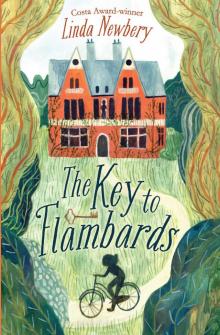 The Key to Flambards
The Key to Flambards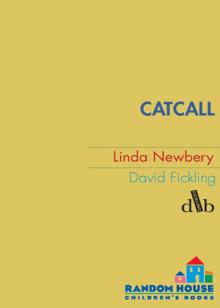 Catcall
Catcall Sisterland
Sisterland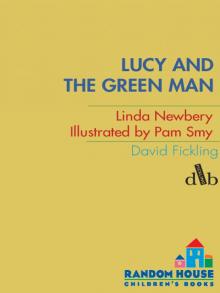 Lucy and the Green Man
Lucy and the Green Man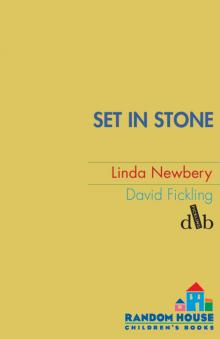 Set In Stone
Set In Stone Lob
Lob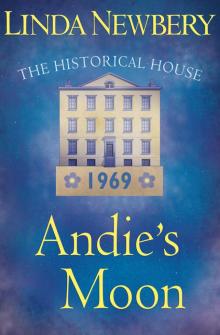 Andie's Moon
Andie's Moon The Shell House
The Shell House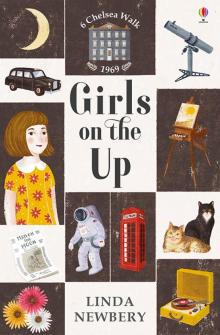 Girls on the Up
Girls on the Up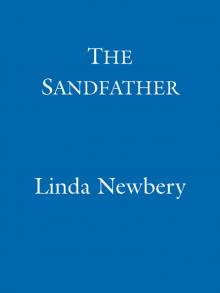 The Sandfather
The Sandfather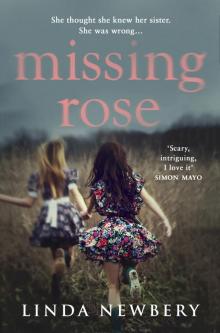 Missing Rose
Missing Rose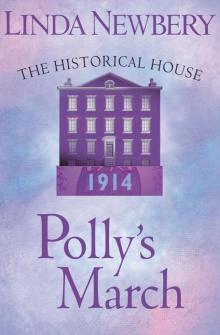 Polly's March
Polly's March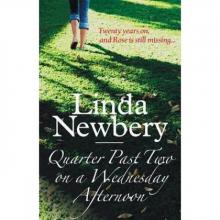 Quarter Past Two on a Wednesday Afternoon
Quarter Past Two on a Wednesday Afternoon Flightsend
Flightsend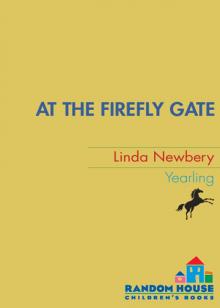 At the Firefly Gate
At the Firefly Gate